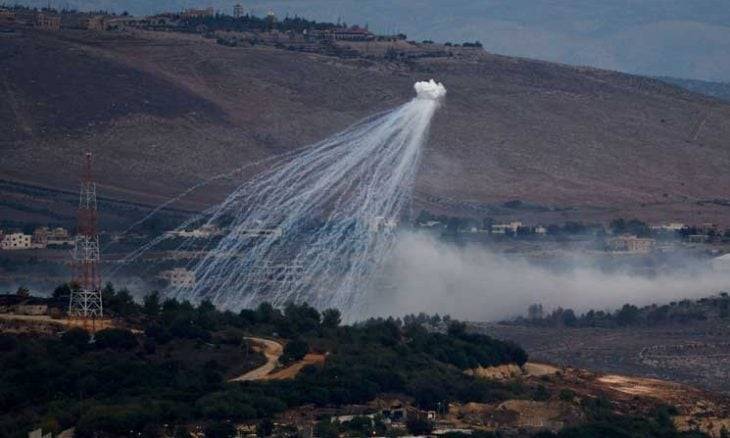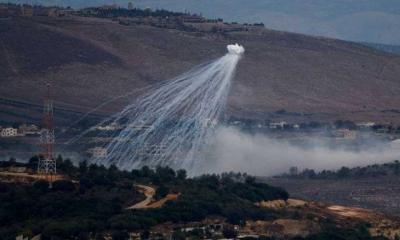Although the retaliatory nature of Israel's assassination of a senior Hezbollah commander, Mohammad Ni'mah Naser, overshadowed the intense rocket attacks launched by the party for a second consecutive day against dozens of Israeli military sites, this explosive day also gained significant implications that heighten concerns about the potential for confrontations to slip beyond control and breach the red lines established by both Israel and Hezbollah. Were it not for a specific factor coinciding with this explosive day, represented by positive news regarding the initiation of new negotiations concerning a prisoner exchange settlement between Israel and Hamas that might lead to a hoped-for breakthrough, the tense situation on the Lebanese-Israeli front would have dangerously surged to the forefront of the regional scene, especially with some Iranian-affiliated factions in the region, such as certain Iraqi groups, hastening to call for volunteer fighters for the war in Lebanon against Israel!
While awaiting the results of the newly initiated negotiations on the Gaza war front and what they might lead to, Lebanese circles have closely monitored the available information about the American-French meetings in Paris regarding the Lebanese situation. A White House official announced that US President Joe Biden's advisor Amos Hochstein met with French officials last Wednesday in Paris to discuss French and American efforts to restore calm in the Middle East. He added that France and the United States share the goal of resolving the current conflict via diplomatic means across the blue line, allowing Israeli and Lebanese civilians to return to their homes with long-term guarantees of safety and security, referring to the demarcation line between Lebanon and Israel.
In this context, "An-Nahar" correspondent in Paris, Randa Taqi al-Din, reported that the shared concern in both Paris and Washington about the possibility of Israel launching a broader war on Lebanon and Hezbollah's ongoing disbelief that such a possibility is strongly plausible loomed over the in-depth discussions Hochstein had in Paris at the French presidential palace with French presidential envoy to Lebanon Jean-Yves Le Drian, who also addressed the stagnation of the presidential election crisis in Lebanon. Hochstein visited Paris to coordinate positions with the French side and update them on his recent communications in Lebanon regarding Israel aimed at preventing the expansion of the Gaza war into Lebanon, following the US-French summit held in Paris between Presidents Emmanuel Macron and Joe Biden last month. Hochstein shares with his French interlocutors the concern that the danger of war expanding into Lebanon is serious; his recent visit to Lebanon aimed to pressure Hezbollah through the Speaker of the Parliament Nabih Berri to cease the bombardment of Israel.
The information available to Washington and Paris indicates that a segment of the Israeli military leadership wants to launch a wide-ranging attack on Lebanon, and public opinion in Israel supports this. Israeli Prime Minister Benjamin Netanyahu, during a phone call with President Emmanuel Macron last Tuesday, did not clearly state his position, saying he is open to a diplomatic solution with Lebanon, while at the same time threatening that if Hezbollah continues its confrontations, Israel is ready to launch a large-scale attack. Sources express concern that part of the army supports the war on Lebanon, along with Defense Minister Yoav Galant and Minister Benny Gantz, with some backing from the Knesset. Washington and Paris are trying to coordinate pressure to achieve calm on the Lebanese front. Both sides are concerned about Hezbollah's prevailing impression that Israel will not attack Lebanon, which they consider a serious miscalculation.
Hochstein had warned in Beirut of this real danger, stating that the United States will not back down from its support for Israel. Meanwhile, regarding the presidential elections in Lebanon, stagnation and disruption continue to dominate, with no new developments in this regard. In line with these sentiments, Saudi Foreign Minister Faisal bin Farhan expressed the Kingdom's concern about the risk of the war expanding into Lebanon, noting in a statement that there seems to be no political horizon according to "An-Nahar."




